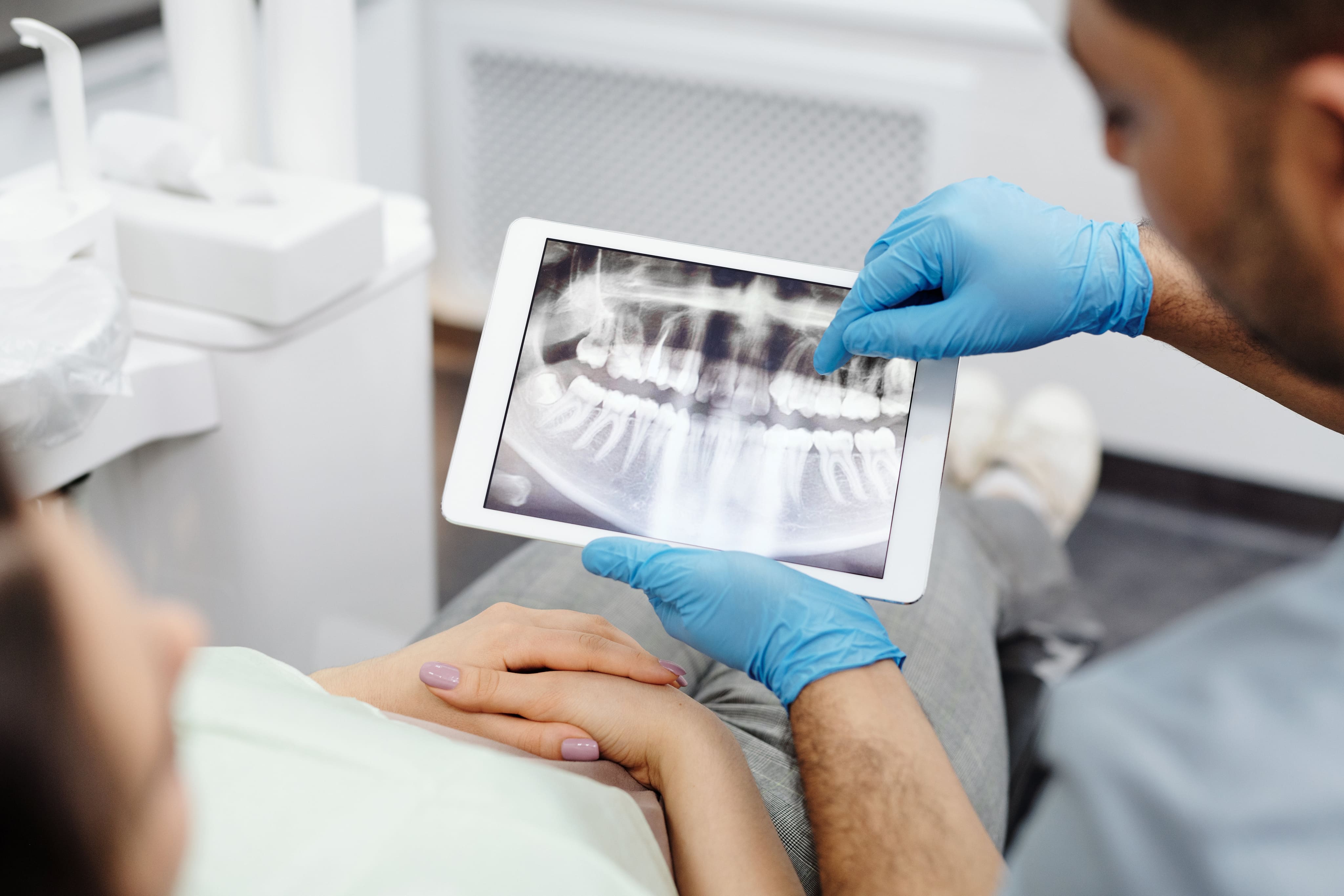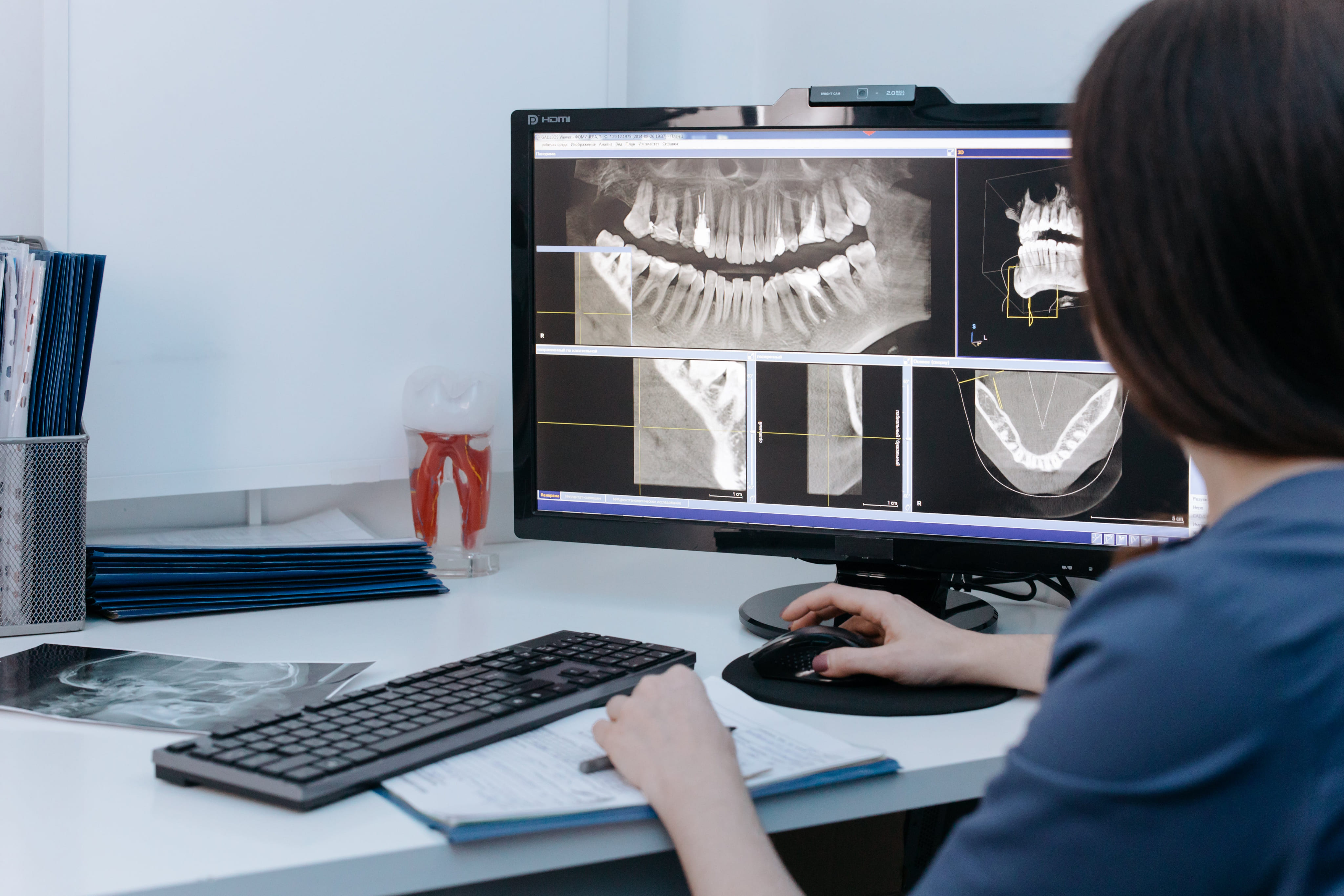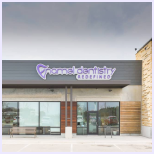
Nitrous Sedation
Enjoy stress free dental procedures with nitrous sedation from an Enamel Dentistry studio In Texas
Stay Calm And Relaxed With Nitrous Sedation
If you're nervous about a dental procedure and want to feel more comfortable, you can request sedation for any treatment. "Laughing gas" is a minimal, effective method of sedation that will keep you calm and relaxed during your appointment without any significant side effects. You'll even be able to drive yourself home after and go about your day as you normally would.

Relieve Dental Anxiety With Laughing Gas
Safe And Convenient
Nothing fussy. Administered by a mask, laughing gas will keep you calm with minimal disruption.
Quickly Wears Off
No long-term effects. A main benefit of laughing gas is it wears off quickly, usually within five minutes.
Remove Needle Fear
Don't worry about the needle. Laughing gas can help ease your nerves if your procedure requires an injection.
Stay Comfortable
No more fidgeting. If your procedure is long, laughing will help you stay comfortable the entire time.
Come In And See Us
We'll Have You Grinning From The Chin Up
We're changing the way patients experience the dentist. Our primary concern is your oral health and making sure you feel comfortable coming to see us. We know it can be scary visiting the dentist. But our philosophy of providing an easy and fun experience combined with our use of advanced AI tools, we know you'll feel different about coming to see us.
We offer:

AI Technology That Doesn't Miss A Thing
We've invested in top-of-the-line tools and the latest technology to improve efficiency and patient care. No more goopy impressions! From AI and 3D printers to iTero for digital and diagnostic impressions, we're equipped with proven equipment to ensure that every procedure is comfortable, convenient and ensures an accurate fit. Combining technology and innovations with our highly professional and knowledgeable dental team enables us to deliver the best treatment outcomes consistently.



Don't Let Finances Come Between You And A Beautiful Healthy Smile
We understand the frustration of needing dental care while feeling it may not be affordable. You shouldn't have to worry about paying for your oral health. That's why we have several options to help you easily finance your dental treatment.
Enamel Dentistry Patients Are The Best
The More You Know,
The Better Your Oral Health Will Be

.jpg)
Should I Keep Flossing If My Gums Bleed?
If your gums start bleeding while you’re flossing, should you keep flossing? Absolutely!
Bleeding while flossing is often a sign that you need to be flossing your gums more thoroughly or frequently—not that they should be left alone. It might sound counterintuitive, but the more you floss, the less your gums will bleed, unless the bleeding is related to physical damage to your gum tissue or a systemic issue. Many patients will stop flossing an area that bleeds, but the best thing to do is to give that area more attention!
Other Reasons Why Your Gums Might Bleed During Flossing
For most patients, simply flossing more often is enough to stop bleeding gums. However, there are several other reasons why your gums could bleed while flossing, including:
- You could be using poor flossing techniques
- You may not be brushing your gums properly while brushing your teeth
- You may have an accumulation of plaque and tartar on your teeth
- You may have had your teeth cleaned recently and had a lot of build-up removed
- You may have gingivitis, the early stage of gum disease
If the bleeding hasn’t gone away within 3-10 days, schedule an appointment to have your dentist check it out. We’ll evaluate your flossing technique and determine whether you may need a cleaning or periodontal care. Gingivitis and gum disease are both very common, but the good news is that they can be reversed in the early stages.
How Often Should You Floss Your Teeth?
Flossing is very important because it can get into areas that your toothbrush bristles can’t. No matter how well you brush your teeth, if you’re not flossing, you’re essentially only cleaning about 50% of your mouth. If you only floss occasionally, your gums will probably bleed because the tissue isn’t used to the stimulation; regular flossing helps the gum tissue become more resilient.
Although some patients floss after every meal, simply flossing once a day will do wonders for your oral health! The best time to floss is typically before you brush your teeth at the end of the day. This will allow the fluoride to make the most contact with your teeth. If you have questions about how to floss your teeth properly, we’d be happy to give you a demonstration!
The bottom line: your gums may bleed from time to time, and generally, it’s not serious. Start flossing more often, and it should go away. But if your gums bleed regularly, it’s time to schedule an appointment with your dentist! Contact your closest Enamel location or book an appointment online.

.jpg)
How Do Cavities Form?
Cavities (also called tooth decay or caries) are permanently damaged areas on the surface of your teeth that eventually turn into holes. They’re one of the most common dental health issues in the world, and anyone who has teeth can get them—even very young children and infants. If cavities get large enough that they’re affecting the deeper layers of your teeth, they can cause infections, severe toothaches, and even tooth loss.
Regular brushing, flossing, and trips to the dentist are the best ways to prevent cavities from forming—but how do they form in the first place?
The Three Stages of Cavities
Cavities don’t just develop overnight; there’s a process that happens, and it begins with plaque.
Have you ever noticed a stick film coating your teeth, especially after eating sugary or starchy foods? This is dental plaque. Every time you eat, the bacteria in your mouth feed on the leftover food particles. Then, they secrete acids that turn into plaque. As plaque accumulates in your mouth, it traps acid, sugars, and bacteria up against your teeth; in turn, these start to erode away at the enamel and demineralize it.
After a while, small holes will start to develop in the enamel. This is the first stage of a cavity. Once the enamel is worn away, it makes it easy for bacteria and acid to reach the dentin, which is the next layer in your teeth. Unfortunately, dentin is much softer than enamel, and it doesn’t resist acid as well. At this stage, you may notice some sensitivity. As the cavity gets worse, the bacteria and acid continue to travel down to the next layer: the pulp.
The pulp is the inner part of your tooth that houses the nerves and blood vessels. As the bacteria and acids start to attack the pulp, it becomes inflamed and irritated. Since the pulp is trapped inside the tooth, it has nowhere to expand as it swells; this causes it to compress the tooth’s nerves—which can be very painful. If left untreated, deep cavities can lead to severe infections or tooth loss.
Factors that Can Increase the Risk of Cavities
There are several factors that can make your teeth more prone to cavities:
- Location. Cavities are more likely to affect the molars and premolars. This is because these teeth are harder to reach, and they have a lot of nooks and crannies to trap plaque.
- Certain foods and beverages cling to your teeth for longer, like dairy products, honey, cookies, hard candy, chips, and soda.
- Eating or drinking frequently gives the bacteria in your mouth a steady supply of food.
- Waiting too long to brush and floss after eating allows plaque to form and start attacking your teeth.
- Dry mouth caused by medications, medical treatments, or certain health conditions can increase the risk of cavities.
- Chronic heartburn (GERD) can cause stomach acid to wear away at your enamel
The thing to keep in mind with cavities is that they aren’t static—they grow and get bigger over time. If you don’t have any cavities yet, that’s great news! Make sure to keep up with your oral hygiene and dentist visits. If you do have cavities, it’s best to take care of them as early as possible to prevent them from getting worse. Schedule an appointment with Enamel Dentistry, and we’ll help you nip those cavities in the bud!

.jpg)
City Lifestyle Austin
Please see HERE what City Lifestyle Austin has to say about Enamel Dentistry and their cutting-edge approach to all aspects of a successful dental practice.
Spoiler Alert: The key is a positive and upbeat attitude that manifests itself in superior dental care.
Tooth troubles? Here are some common FAQ's
In most cases, the answer is no. Gum health issues like gingivitis are very rare in toddlers. If your toddler’s gums are swollen and tender, this is likely due to the natural teething process. As the teeth begin to move beneath the surface of the gums, the gums may look swollen or red, and seem inflamed. Your toddler may also be cranky or complain of pain in their mouth if they’re old enough to do so. However, this is completely normal. As their tooth erupts, their gums will stop swelling and will become less inflamed. Once the tooth has fully erupted, you will no longer notice any serious inflammation or swelling around the area.
If your gums start bleeding while you’re flossing, should you keep flossing? Absolutely! Bleeding while flossing is often a sign that you need to be flossing your gums more thoroughly or frequently—not that they should be left alone. It might sound counterintuitive, but the more you floss, the less your gums will bleed, unless the bleeding is related to physical damage to your gum tissue or a systemic issue. Many patients will stop flossing an area that bleeds, but the best thing to do is to give that area more attention!
Just about all kinds of toothpaste contain some sort of mild abrasive, as this helps remove plaque and polish your teeth. However, whitening toothpastes usually have a higher level of abrasive particles. Baking soda is often used, as is silica, dicalcium phosphate, and a number of other abrasives. These abrasives are usually formulated specifically to be softer than your enamel. This ensures that they do not wear down your teeth, but they can still be used to buff away surface stains caused by plaque buildup, and keep your teeth looking bright and beautiful.
If you have a persistent or severe toothache, this may indicate that you have an infected tooth. If this is the case, it’s critical to come in for an emergency appointment to get a root canal and restore your tooth. Enamel Dentistry offers emergency care and expert root canal therapy, and we want to make sure that our patients are informed about the signs and symptoms of infected teeth. Here are a few things to keep in mind about emergency dental care and root canal therapy in Austin:


%201.svg)
%201.svg)
%201.svg)








